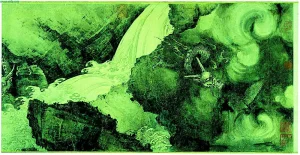I speak for dead people—some with real historical lives that can be read about in books and some who only live in my head, but I hear them speak. Just because people are dead doesn’t mean they never existed. Just because people are dead doesn’t mean they don’t have a story.
The challenge for this writer is to portray these people as authentically as possible, a daunting challenge at best. Sometimes the facts of their story have been written down, at least some of the facts. As any writer or reader knows, sometimes there are big holes in the facts of someone’s story. How they thought and felt is another matter. Even writing what I think and feel about my own life can be a mission sometimes, at least in a way that others will feel compelled to read it. Throughout history, I bet people who journaled felt the same pressure, at least the ones hoping to publish–very tricky this stuff of portraying a story, anybody’s story. And what about the one’s who didn’t journal? Who speaks for them, especially when someone else tells their story and gets even the facts wrong?
How can I explain my need to write the words of the dead? The Trickster enters into my stomach (through a process I don’t entirely understand) and creates this “havoc” or a “gut feeling,” and away I go. I start hearing dead people talk. Dead does not mean silent, as long as there is someone to hear them and type down what they say (I hardly write anymore, my hand hurts). So, I hear it, and I type it. Whether or not the dead are happy about this, I have no idea. They haven’t said one way or the other, but they keep talking, and as long as they’re talking, I’ll keep listening, and typing, speaking for the dead, as best I can.
Then there’s music, I hear that, too. But that’s another story…
Green (my addition) Dragon from the 13th century Southern Song Dynasty.
Trickster, is that you?

And Happy Birthday to my daughter Ashlee! What a story she will tell…

Are we dead yet?
I’m not lol
I wonder what you mean by ‘Trickster’. In my world, it is a negative term that has been applied to one of the most beloved, creative and innovative characters in Native lore. There is no Native word for the term ‘trickster’, it was borne out of the missionaries horror at discovering Raven, Gluscap, Coyote, Rabbit and many others were considered to be on the same level as Jesus. The Transformative Culture Heroes, for that is their correct name, did not create the world, but they did help organize it, as Jesus attempted to do.
The term “trickster’ somehow made it into the lexicon of missionary racism and has been in the popular culture ever since. I fight a lonely battle to trying to change the perception of the ‘organizers of my world.’ All My Relations
Point taken. I'm not aware of works by missionaries comparing the Trickster to Raven. My understanding of Trickster came from Joseph Campbell and Carl Jung.
Christian Missionaries (even today) as you know, didn't acknowledge any of the "spiritual" ideas Native Cultures had to offer.
That's what I'm trying to do with my story about Weetamoe & Mary–show the lack of intellect or sensitivity.
My hope is to find ways to connect humans that go beyond cultural religions–one reason I like Joseph Campbell, and of course, music, stories etc.
Thank you for your thoughts Thunderbird.